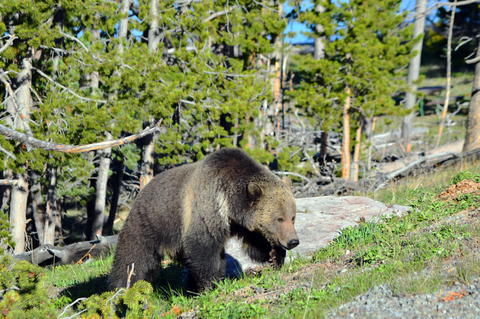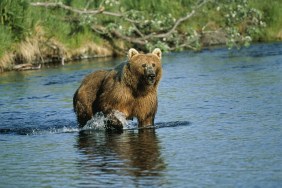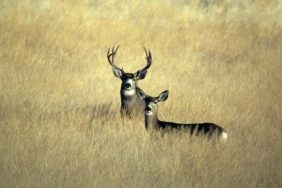
As hunters flock to the woods quietly stalking their prey, the chances of coming face to face with a bear are highly likely. That’s because everything hunters do is the exact oppose of what hikers should do to avoid bears, namely making a lot of noise.
Dusty Lasseter, a community coordinator for Wyoming Game and Fish Department urges hunters to be cautious and carry means of deterrent, such as bear spray.
“If you hunt in bear country, it is critical that you are prepared mentally and physically. Hunters should be prepared for an encounter and knowing what to do when you encounter a bear should be as automatic or routine as packing an extra jacket so that you are prepared for inclement weather,” Lasseter said, according to a press release.
From a hunter’s perspective, lots of things make them more prone to a bear encounter. Consider the combination of quiet movement, camouflage clothing, masked human scent, being active at dawn and dusk and using game calls to mimic what bears consider prey and it’s clear why hunters are at increased risk in the field.
“All of these behaviors make hunters successful, but at the same time, there is an inherent risk of attracting bears or bumping into one,” Lasseter said.
He said it’s critical to be prepared mentally and physically. The most important tool hunters can use is to be aware of their surroundings and how to react to certain situations. First and foremost, he says, carry bear spray. To further stay safe while hunting in bear country, Lasseter recommends taking the following precautions:
- Carry a bear deterrent, such as bear spray, and know how to use it.
- Hunt with a partner and stay within sight of each other.
- Remain alert and watchful for bear activity; avoid “tunnel vision” while pursuing game.
- Learn to recognize bear sign such as scat, tracks and diggings.
- Know where seasonal food sources are present and either avoid or be especially cautious in those areas.
- Be aware that the presence of ravens and other scavengers is a good indication that a potential food source is nearby and a bear may be in the area. Avoid these areas if possible.
- Retrieve game animals as quickly as possible and watch for approaching bears when field dressing and quartering. If game must be left on the ground overnight, separate the carcass from the entrails and place the carcass in an area that can be safely viewed from a distance.
- When retrieving game, make noise; use binoculars to search the area for bears and to determine if the game has been disturbed by bears prior to walking in on the carcass.
- Be aware that bears often daybed near food sources.
- If a bear has claimed your carcass, leave the scene and report the incident to Game and Fish.
- Remember that bears actively defend their food, their young, and their personal space. During the fall, all bears are on the lookout for food before going to winter slumber.
Photo credit: Dreamstime
Bears in Action
-
King of the mountain

-
Here fishey, fishey
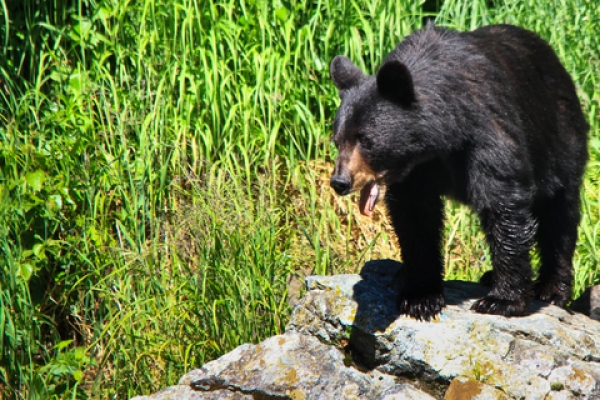
-
Get outta here!!!
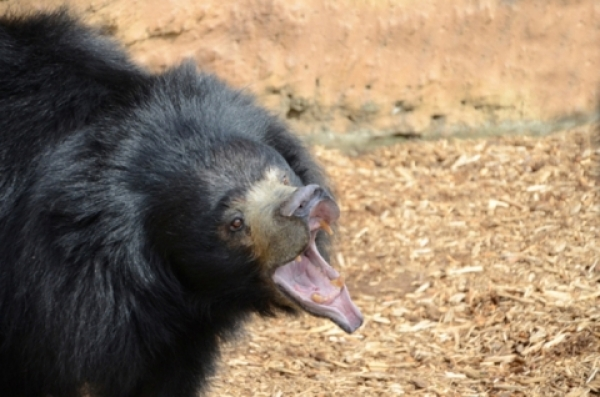
-
Hum Diddy Um Diddy Umpt
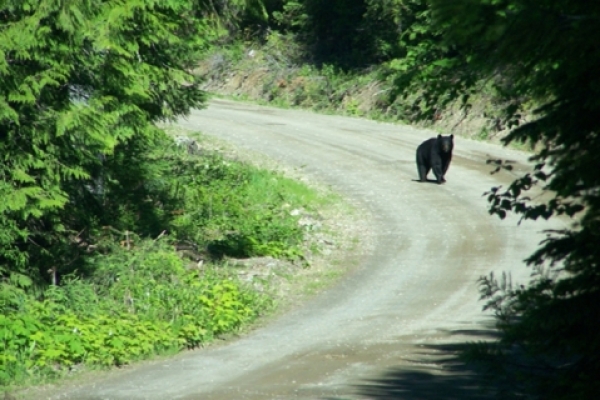
-
Who's that?
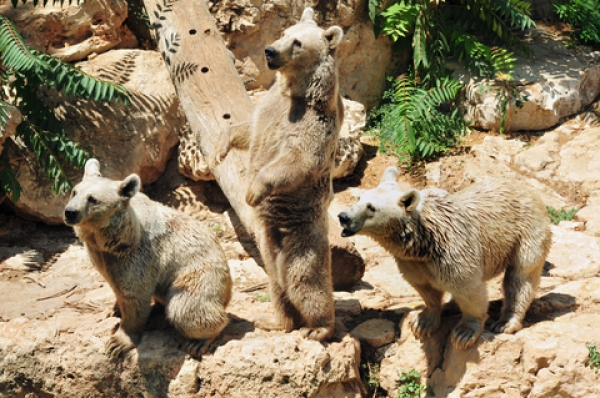
-
Hey, break it up you two!
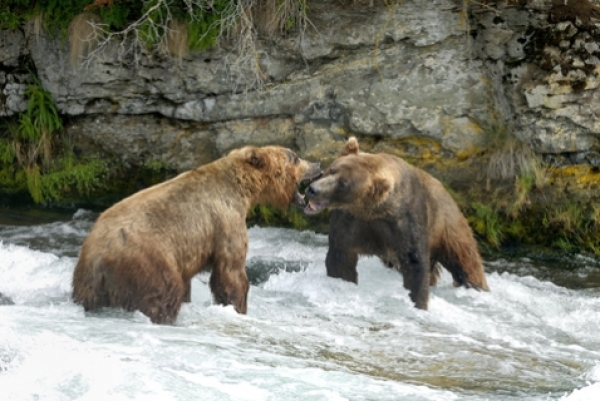
-
I hate fishing in the rain.
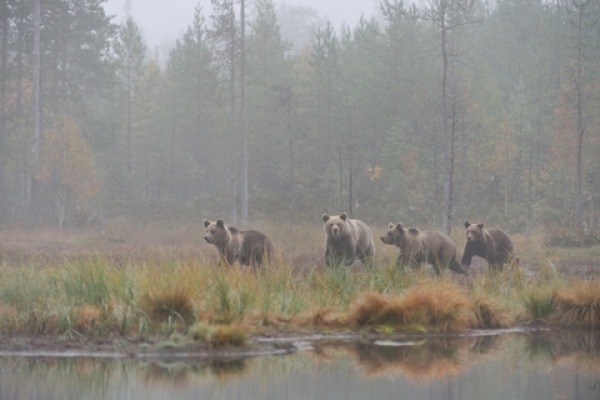
-
Is my hair straight?
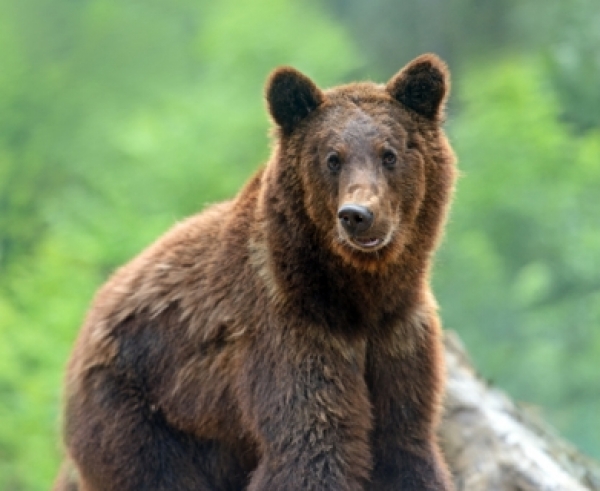
-
Play fighting? How cute.
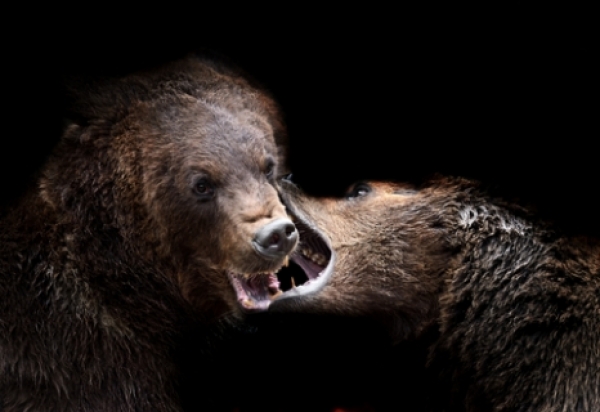
-
I thought I smelled a salmon.
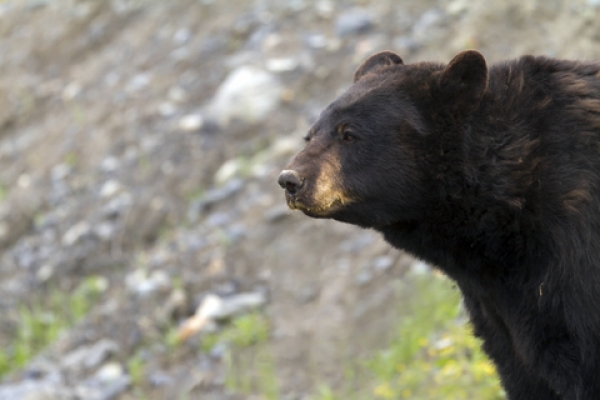
-
Hey don't look at me right now.
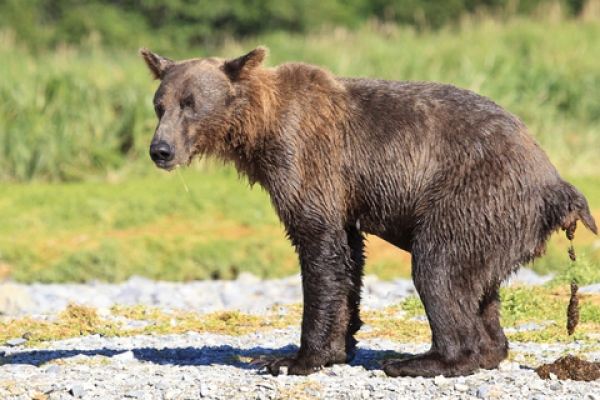
-
Yes!! Got one!
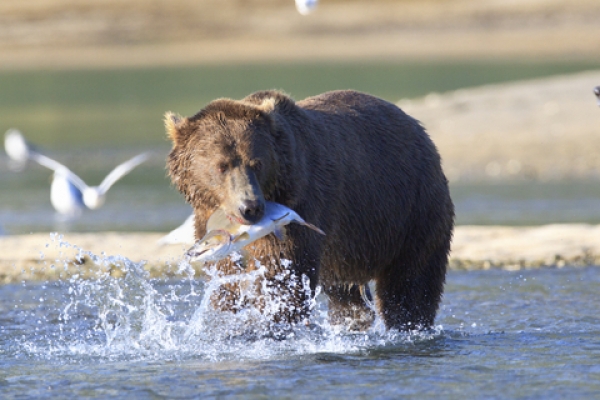
-
Fuzzy in tall grass.
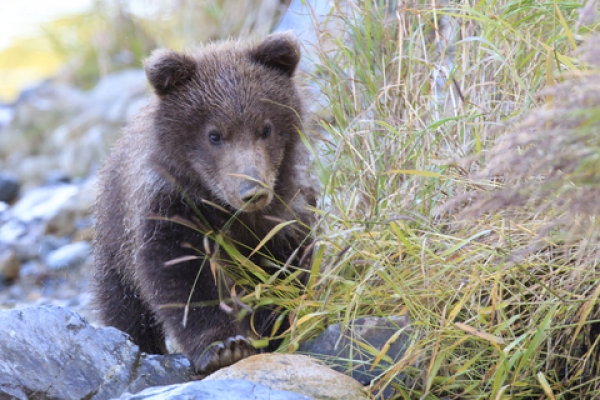
-
Now this is gonna happen.

-
Where's the ice?
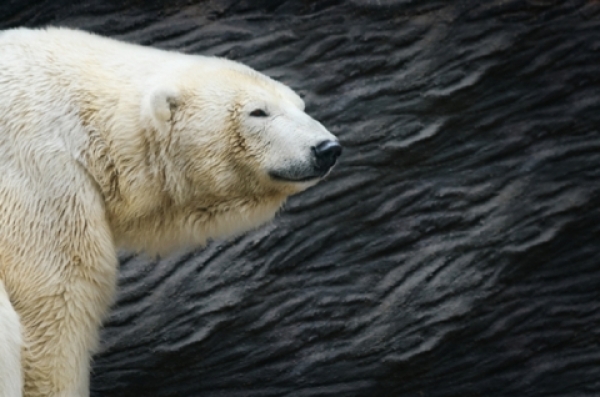
-
Don't mess with me.
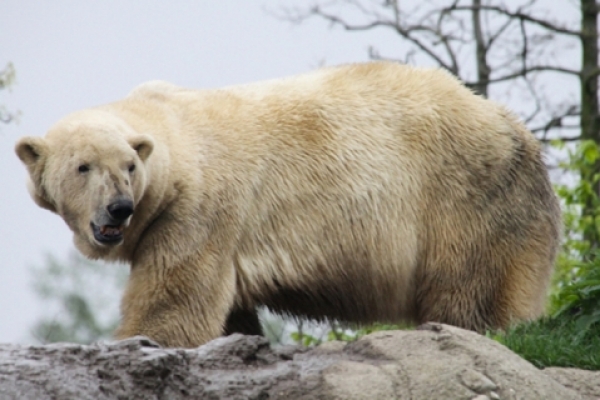
-
Man, am I tired
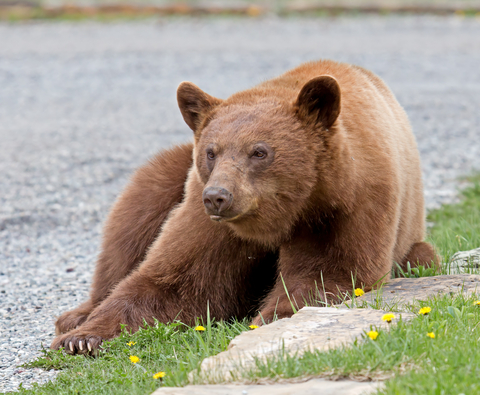
-
Come give me a hug, I'm crazy
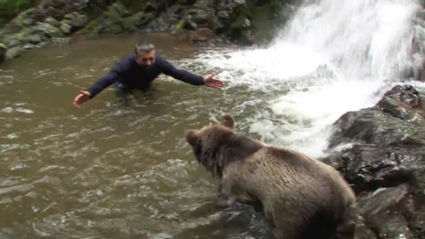
-
Damn, not this again
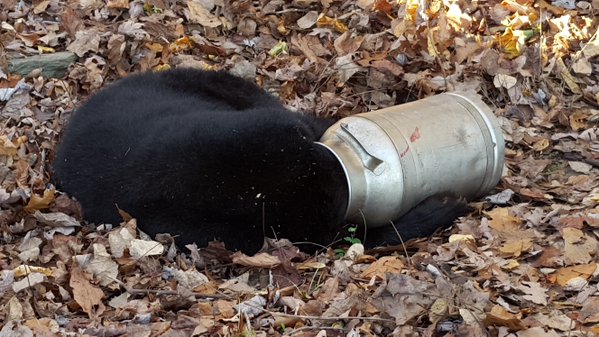
-
Paintballs are no match
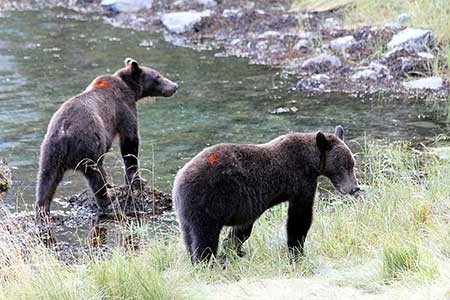
-
I will climb anything for an egg
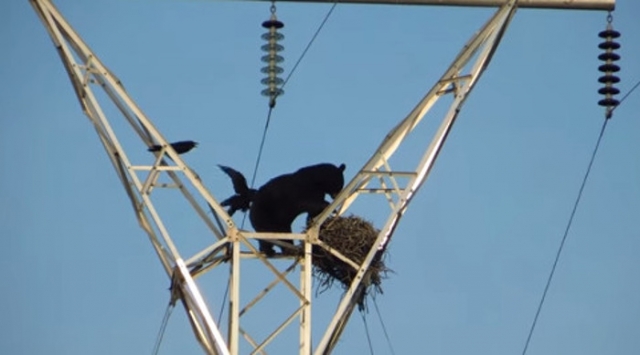
-
Ah, how cute

-
Now, which way to the campground
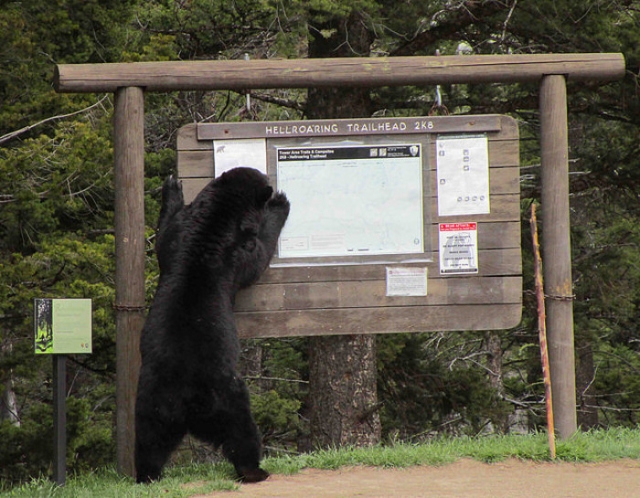
-
Nothing to see here
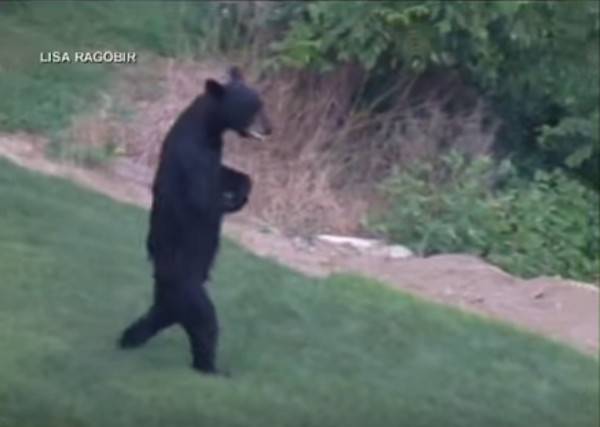
-
Yea, I'm not the cutest
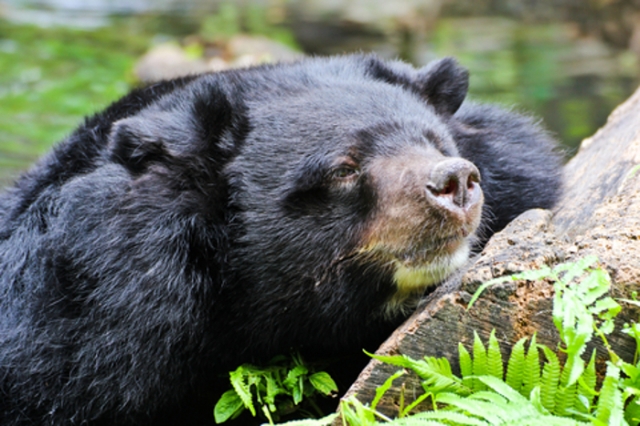
-
What's that?
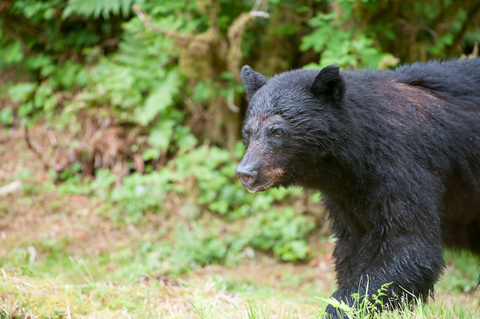
-
Black bear in field
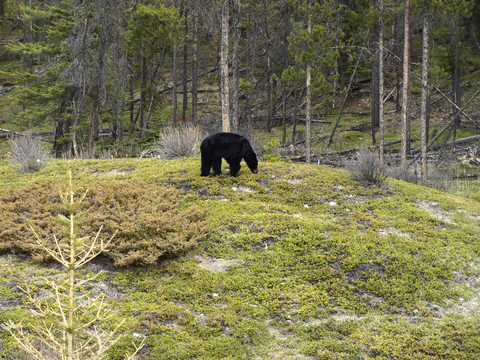
-
Grizzly in Glacier

-
Grizzlies in Alaska
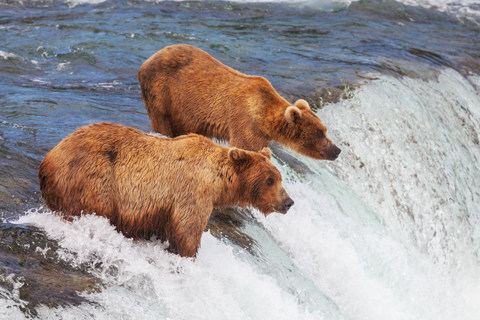
-
A stallion of a bear
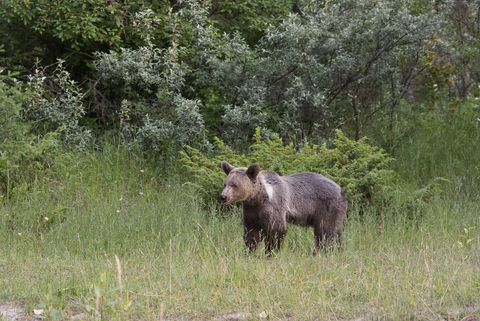
-
Big male grizzly
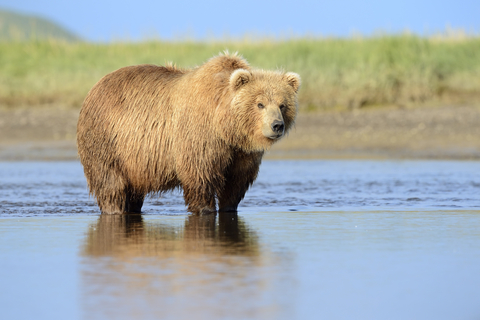
-
Hey big guy
